It's summer so let's go site seeing!
Be part of our first DECHEMA Summer Special focusing on Carbon Capture and Utilization.
CCU pathways have been explored all over the world. Join us on our World Tour and visit several plants already in place across the globe.
Carbon Recycling International (CRI), INERATEC GmbH (Innovative Chemical Reactor Technologies) and Mineral Carbonation International (MCi) will warmly welcome you virtual in Iceland, Germany and Australia and demonstrate how CO2 can be used to produce chemicals, fuels and building materials!
During further stops in Switzerland and Canada the Climeworks AG and Carbon Engineering Ltd. will present how CO2 can be captured from the atmosphere for further processing. Travel nearly carbon free around the world and step virtually into real application and production sites.
CCU works! And now?
Experts on policy and regulations from public bodies, industry, academia and NGOs will discuss how CCU may overcome the demonstration phase. Taking the next step towards a real business case has important impacts on reducing greenhouse gas emissions and also leads to further independence of the process industry from fossil raw materials and fuels.
Register now and make sure to get your ticket!
Find out more about CCU projects, media and articles:
Travel virtually around the world to join a guided site seeing tour to five of the most outstanding CCU-projects. CCU pilot plants work and could have a great impact on reducing greenhouse gas emissions. How is it possible to establish these technological diverse plants as final factory buildings in the market so that the necessary industrial recycling of CO2 may succeed in the future?
Berlin |
Canberra |
NewYork |
Programme |
|
9:45am |
5:45pm |
3:45am |
General information about the use of the webtool „whova“ |
Tour guides morning session:Katy Armstrong, CO2Chem Network Manager - University of Sheffield, United Kingdom |
|||
|
10:00am |
6:00pm |
4:00am |
Opening speech Sophia Hamblin Wang, COO, Mineral Carbonation International (MCi) |
|
10:15am |
6:15pm |
4:15am |
CO2 around the world – CCU site seeingFirst stop: Mineral Carbonation International (MCi) – Canberra, Australia Scaling industrial pathways to decarbonisation: A tour of MCi’s global reference pilot plant, Marcus Dawe, CEO MCi
Second stop: Climeworks AG – Zurich, Switzerland The DAC plant in Hinwil, Switzerland is only the first step towards the development of significantly bigger DAC plants in the next few years, André Bechem, Senior Product Engineer
Q&A – Global knowledge sharing there is plenty of room to ask your questions after each guided tour or via Q&A chat in between. |
|
11.05am |
7:05pm |
5.05am |
unplug - bio break |
| 11:15am | 7:15pm | 5:15am |
DEBATE ONE: CAN REGULATIONS CHANGE THE WORLD?Which policies and regulations are needed to accelerate the market entrance of CCU technologies? What are the responsibilities of the industry to overcome the demonstration phase?
"Captured CO2 will be a fundamental feedstock in climate-neutral economies - just as crude oil is today." Jan Freymann, Manager Public Affairs, Sunfire GmbH, Germany
Resource efficiency, energy transition, market growth, social equity - How can be different interests addressed equally?
"Which tools should be developed for assessing CCU technologies?" Aïcha el Khamlichi, Engineer, ADEME - Agence de la transition écologique, France "CCU R&D in China."
Tao Wang, Associate Professor - College of Energy Engineering, Zhejiang University, Hangzhou, China |
|
12:15pm |
8:15pm |
6:15am |
Lunch – Dinner - Breakfast Network and connect in groups or arange bilateral meetings with our "whova" mobile app. |
Tour guides afternoon session:Sabrina Müller, Project Manager - DECHEMA e.V., Germany |
|||
|
1:00pm |
9:00pm |
7:00am |
Have a look inside the Covestro lab. |
|
1:10pm |
9:10pm |
7:10am |
CO2 around the world – CCU site seeingThird stop: Carbon Recycling International (CRI) – Reykjavik, Iceland World‘s first industrial e-fuel and e-chemicals plant using recycled CO2 and electrolysis with renewable energy, Benedikt Stefánsson, Director of Business Development
Fourth stop: INERATEC GmbH - Innovative Chemical Reactor Technologies Karlsruhe, Germany Producing something new from carbon dioxide
Fifth stop: Carbon Engineering Ltd. – Squamish, Canada DAC pilot plant at CE’s head office where the team optimizes and improves their technology and where they are designing the world’s largest DAC plant, Doug Rae, VP International Business Development
Q&A – Global knowledge sharing there is plenty of room to ask your questions after each guided tour or via Q&A chat in between. |
|
2:25pm |
10:25pm |
8:25am |
unplug - bio break |
| 2:35pm | 10:35pm | 8:35am |
DEBATE THREE: HOW TO TAKE THE NEXT STEP From a Vision TOWARDS A REAL BUSINESS CASE?Experts on policy and regulations from public bodies, industry and academia will discuss and envision how CCU may overcome the demonstration phase and show pathways how goals for CCU become reality.
“How to use 4Gtons/year of CO2 for profitable, environmentally friendly products.” "Power to X in North Africa."
PhD/Dr-Ing. Samir Rachidi, R&D Director, IRESEN, Maroc
"Challenges for developed countries - pathways to overcome fossil lock-in effects." |
|
3:15pm |
11:15pm |
9:15am |
Wrap up and Closure |
|
3:30pm |
11:30pm |
9:30am |
Optional get-together: Grab a drink and join our after/before – work chit-chat and discuss what you have seen or get additional tips for your next summer vacation. |
Canberra (Australia) – Zurich (Switzerland) – Karlsruhe (Germany) – Reykjavik (Iceland) – Vancouver (Canada)
If you travel by plane it is about 4.372 kg but with us you travel virtually and then it is only approx. 43 kg, considering the use of power for preparations and implementation of the event. (source: www.co2.myclimate.org/en/flight_calculators/new)
Research pilot plant for CO2 mineral carbonation beyond laboratory scale.
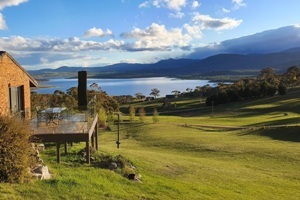
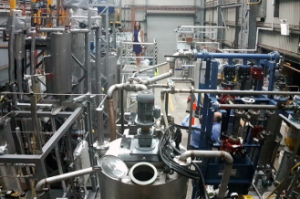
The DAC plant in Hinwil, Switzerland is only the first step towards the development of significantly bigger DAC plants in the next few years.
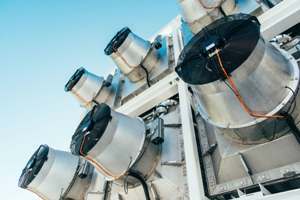
Summer in Switzerland is good because:
World‘s first industrial e-fuel and e-chemicals plant using recycled CO2 and electrolysis with renewable energy.
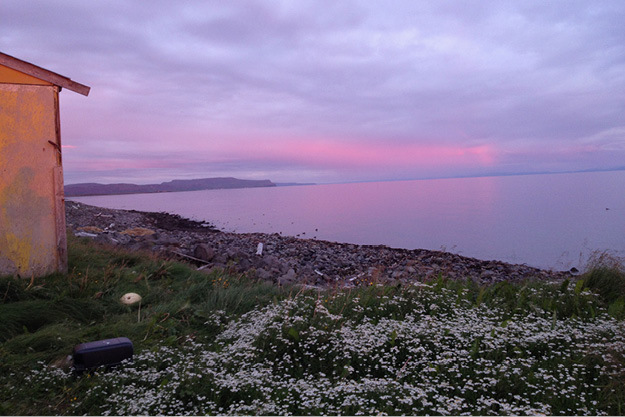
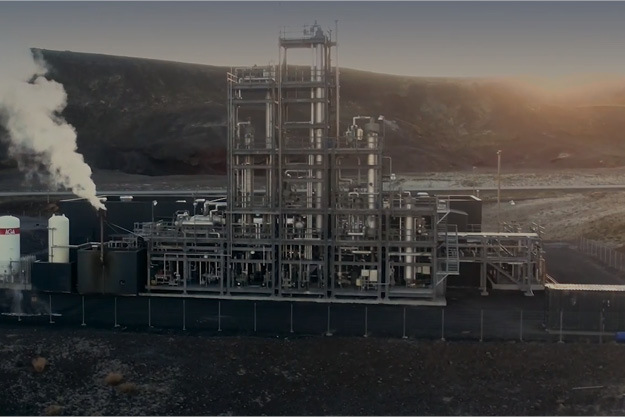
Summer in Iceland is good because:
Producing something new from carbon dioxide emissions.
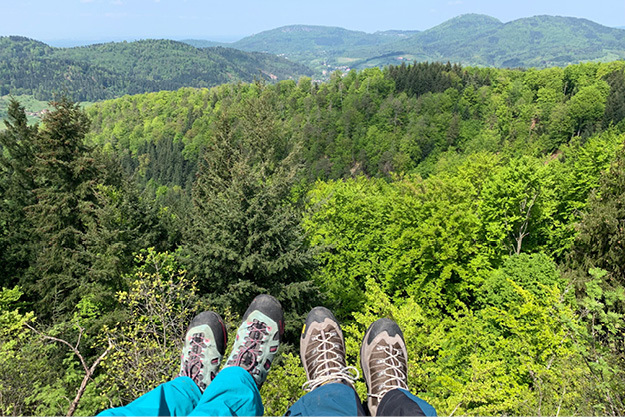
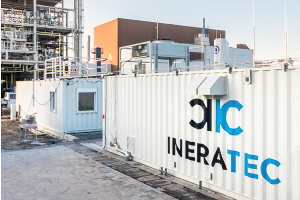
Summer in Germany is good because:
DAC pilot plant at CE’s head office where the team optimizes and improves their technology and where they are designing the world’s largest DAC plant.
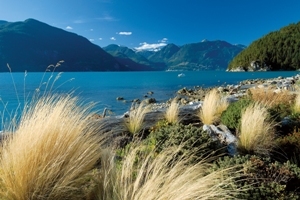
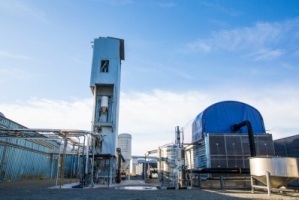
Summer in Canada is good because:

|
"This is a unique opportunity to explore global CCU facilities without leaving the comfort of our (home)offices nor adding to our carbon footprints. I'm looking forward to seeing the plants of so many technologies I've heard about over the years and hearing of new innovations in CCU." |
|---|---|

|
"It is widely accepted that Direct Air Capture (DAC) is the key technology to enable negative emissions. The DAC plant in Hinwil, Switzerland is the world’s first commercial DAC plant that paves the way for CCU and CCS measures worldwide." André Bechem |

|
"CO2 is one of the most-discussed greenhouse-gases, but it can also serve as raw material: in our Power-to-Liquid plants we produce highly valuable synthetic fuels and chemicals from CO2 and renewable energy." Dr.-Ing. Tim Boeltken |

|
“MCi has developed its carbon engineering legacy to a point of utilising multiple industrial sources of CO2 to develop new materials and products – without the need for a carbon price. We’re moving towards advanced commercialisation and already introducing industry to an effective and affordable path to decarbonisation.” Marcus Dawe |

|
"Sunfire turns aviation into a climate-neutral industry by substitung crude oil with renewable e-Fuel produced from CO2, water and renewable electricity. Our first industrial-size plant will start operation in 2023." Jan Freymann |

|
Sophia Hamblin Wang |

|
"How one molecule, carbon dioxide, responsible for climate change could be also a key driver to defossilise chemical products, materials and fuels? Environmental assessment for each CCU technology should help to identify the most sustainable CCU technology." Aïcha el Khamlichi |

|
"I am looking forward to get a closer look at those outstanding CCU-plants and to see them virtually with many colleagues from all over the world!" Dennis Krämer |
|
|
"CCU can turn problems into opportunities, turning CO2 from a pollutant to a valuable carbon feedstock to make the products we all use, replacing fossil feedstock. Therefore it can help us on the path to climate neutrality while also making our industry, economy and society more clean, sustainable and competitive." Carmine Marzano |

|
"The DECHEMA Summer Special event series is the perfect opportunity to show the world how advanced CCU technologies have become."
Dr.-Ing. Sabrina Müller |

|
PhD/Dr-Ing. Samir Rachidi |

|
"I’m pleased to take you on a virtual tour of Carbon Engineering’s Direct Air Capture pilot plant in Squamish, Canada, where we developed and demonstrated our industrially-scalable air capture technology. From this pilot plant our team has been capturing atmospheric carbon dioxide since 2015 and are currently engineering the world’s largest DAC plant – a facility that will capture one million tons of carbon dioxide from the air every year." Doug Rae |

|
"Covestro has developed an innovative technology which brings CO2 back into the value chain in an economic and ecological way. This is a breakthrough for the chemical industry and broadens the raw material base for many applications." Marina Sebastian |

|
“We seek to achieve that CO2 capture and use is recognized and implemented as a mainstream climate solution. We need to accelerate in building a marketplace to capture and transform CO2 into commercially sustainable products." Prof. Volker Sick |

|
“CRI pioneered the production of liquid e-fuels and e-chemicals at industrial scale from recycled CO2 and hydrogen. We help companies to defossilize chemical production and switch to carbon neutral energy sources in transport.” Benedikt Stefansson |
|
|
"CO2 is not only a waste but also a very important carbon resource. Its activation with greener energy, transformation, utilization and their efficiencies will define sustainability of our future development." Atsushi Urakawa |

|
"As coal had been the feedstock since the beginning of the industrial revolution and petroleum after WW II renewable electricity and CO2 will be the basis for chemicals and fuels production in the 21st century." Prof. Dr. Kurt Wagemann |
|
|
Tao Wang |